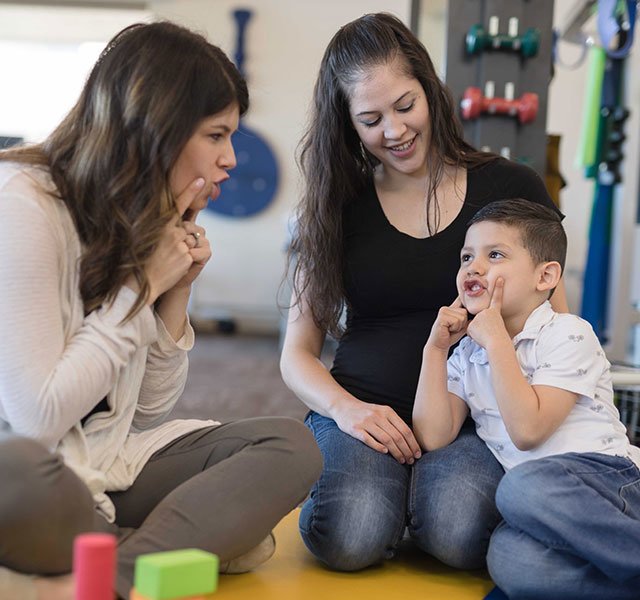“Use your words!” This is a phrase parents often tell their children. But for children with autism spectrum disorder, or ASD, “using words” may not be possible. In fact, difficulty with communication is a defining characteristic of autism.
“Most children with autism do have deficits in speech and language,” says Christy Schweitzer, M.A., CCC-SLP, a speech language pathologist with Henry Ford Health. “However, the definition of autism describes deficits in communication.”
Schweitzer says “communication” includes not only speech and language but also gestures, eye contact and other nonverbal ways we give information to others.
“When parents say their child isn’t communicating, what they often mean is, ‘My child isn’t communicating in a way that I can recognize and understand,’” Schweitzer says.
Building Communication Skills
When a doctor suspects a child has autism, the child is referred to a variety of specialists, including a speech language pathologist who is trained to treat individuals with voice, speech and language disorders.
In some cases, children may not be able to learn verbal language, so they require alternate ways to communicate.
“Having other methods of communicating can mean the difference between being able to calmly and successfully let others know what they want versus having a tantrum,” explains Schweitzer.
Teaching other forms of communication is a large part of speech therapy.
“Our primary goal is to have the children talk in words and sentences,” Schweitzer says. “For some children with ASD, this is not possible, especially at the beginning of therapy. They often need other ways of communicating wants and needs.”
This may include teaching kids to use sign language or pictures of items to make a request. “For some kids, handing an adult a picture of the item they want makes more sense than saying the word,” she says.
If a child isn’t saying some single words by 18 months, or is not using two-word phrases by age 2, he or she should be evaluated.
“We want all children to use conventional speech and language to their greatest potential,” Schweitzer says. “However, some children need to learn other ways of communicating before they are able to grasp the concept of words and sentences.”
Related Topic: More Than Autism: Coping with Co-Existing Conditions
To make an appointment with a Henry Ford Center for Autism and Developmental Disabilities specialist, call (313) 916-4665 or visit henryford.com/autism for information.
To find a pediatrician, visit henryford.com or call 1-800-HENRYFORD (436-7936).
Christy Schweitzer, M.A., CCC-SLP, is a speech-language pathologist specializing in working with children with communication disorders, and leads pediatric speech services for Henry Ford Health.



